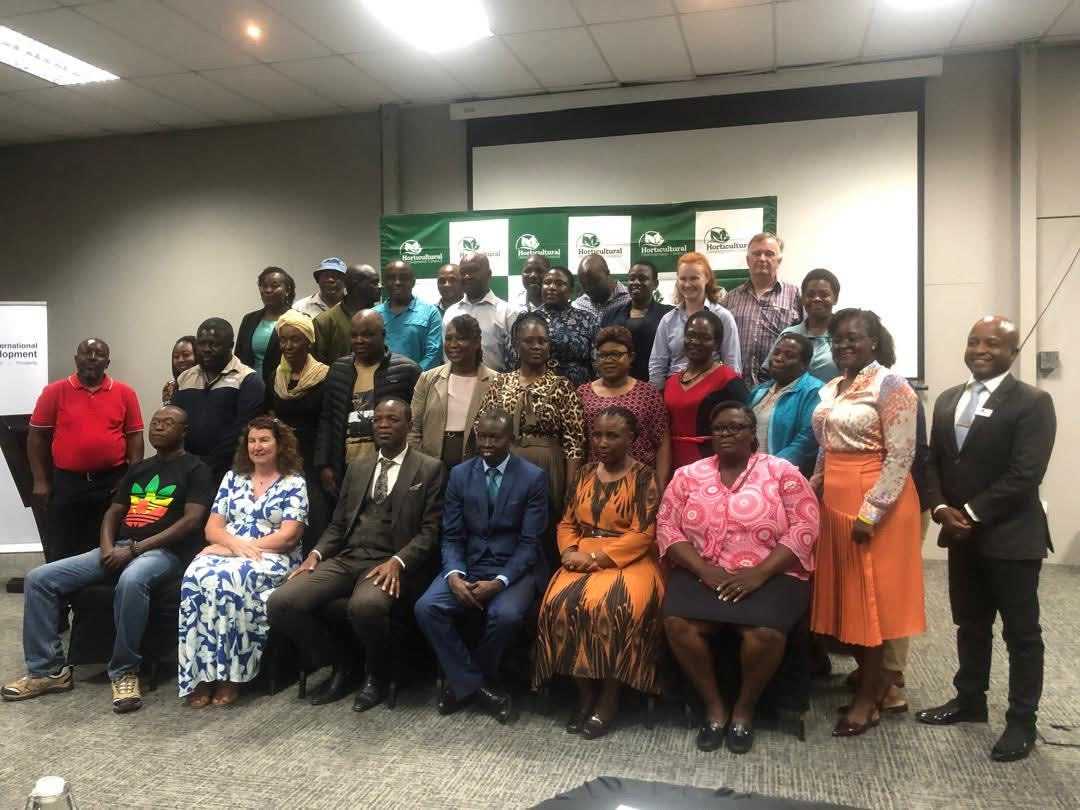
Rutendo Mazhindu- Zim Now Reporter
Zimbabwe’s billion-dollar horticulture industry is under threat from pests that have triggered repeated export interceptions, prompting government and stakeholders to come together in search of urgent solutions.
Yesterday, exporters, farmers, researchers, regulators, and development partners gathered at Cresta Lodge in Msasa for a Stakeholder Consultation Workshop on Key Pests in Flowers and Blueberries.
The meeting was organised by the Plant Quarantine Services Institute (PQSI) under the Ministry of Lands, Agriculture, Fisheries, Water and Rural Development, in partnership with the Horticultural Development Council and supported by TradeMark Africa.
Zimbabwe’s horticulture exports are worth over US$100 million annually, with blueberries, flowers, citrus, and avocados topping the list. But the country has been struggling with pest interceptions, especially in the European Union, which buys 42% of the produce.
Even a single detection of harmful organisms can result in shipment rejections and massive losses for farmers.
Dr. Dumisani Kutywayo, Chief Director of the Directorate of Research, Education and Specialist Services, said pests had now become trade barriers.
Related Stories
“The production and export of flowers and blueberries has become a true success story in our agricultural landscape. We recently secured access to the Chinese market for blueberries—an achievement that opens tremendous opportunities for our farmers and exporters.
"But as we celebrate this milestone, we must also confront the pest and disease challenges that threaten our exports,” he said.
He warned that interceptions harm the entire value chain.
“Interceptions are not only demeaning to the farmer who has worked so hard, but also to the inspector and regulator, and to the nation’s economy. That is why yesterday was not just a technical meeting. It was a call to action—a call to unite government, regulators, producers, exporters, and industry leaders around a common vision,” he added.
Monica Mabika, representing the HDC, said Zimbabwe’s reputation for high-quality exports was at stake.
“Zimbabwe’s flowers and blueberries are recognised globally for their exceptional quality. But this reputation can only be sustained if we meet the highest phytosanitary standards.
"The repeated pest interceptions we have experienced are a wake-up call. Yesterday’s workshop gave us the opportunity to review root causes, strengthen compliance systems, and ensure that smallholder farmers also benefit from export markets,” she said.
TradeMark Africa said it was investing in pest surveillance, laboratory strengthening, digital traceability systems, and cold chain infrastructure to reduce interceptions by 30% by 2027, while also cutting compliance costs for exporters.
Participants closed the workshop by committing to a joint action plan to protect livelihoods and keep Zimbabwe’s produce competitive in global markets.


















Leave Comments